Resources
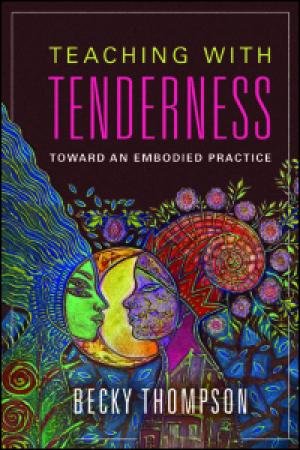
Click Here for Book Review Imagine a classroom that explores the twinned ideas of embodied teaching and a pedagogy of tenderness. Becky Thompson envisions such a curriculum--and a way of being--that promises to bring about a sea change in education. Teaching with Tenderness follows in the tradition of bell hooks's Teaching to Transgress and Paulo Freire's Pedagogy of the Oppressed, inviting us to draw upon contemplative practices (yoga, meditation, free writing, mindfulness, ritual) to keep our hearts open as we reckon with multiple injustices. Teaching with tenderness makes room for emotion, offer a witness for experiences people have buried, welcomes silence, breath and movement, and sees justice as key to our survival. It allows us to rethink our relationship to grading, office hours, desks, and faculty meetings, sees paradox as a constant companion, moves us beyond binaries; and praises self and community care. Tenderness examines contemporary challenges to teaching about race, gender, class, nationality, sexuality, religion, and other hierarchies. It examines the ethical, emotional, political, and spiritual challenges of teaching power-laden, charged issues and the consequences of shifting power relations in the classroom and in the community. Attention to current contributions in the areas of contemplative practices, trauma theory, multiracial feminist pedagogy, and activism enable us to envision steps toward a pedagogy of liberation. The book encourages active engagement and makes room for self-reflective learning, teaching, and scholarship. (From the Publisher)
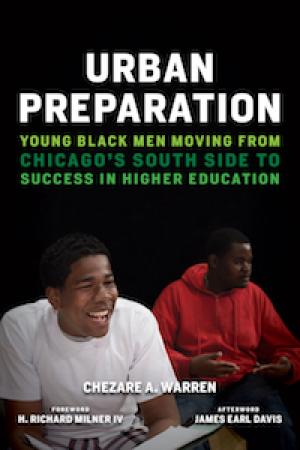
Click Here for Book Review Chezare A. Warren chronicles the transition of a cohort of young Black males from Urban Prep Charter Academy for Young Men to their early experiences in higher education. A rich and closely observed account of a mission-driven school and its students, Urban Preparation makes a significant contribution to our understanding of how young males of color can best be served in schools throughout the United States today. A founding teacher at Urban Prep, Warren offers a detailed exploration of what this single-sex public high school on the South Side of Chicago has managed to accomplish amid profoundly challenging circumstances. He provides a comprehensive portrait of the school—its leaders, teachers, and professional staff; its students; and the community that the school aims to serve—and highlights how preparation for higher education is central to its mission. Warren focuses on three main goals: to describe Urban Prep’s plans and efforts to prepare young Black males for college; to understand how race, community, poverty, and the school contributed, in complex and interrelated ways, to the academic goals of these students; and to offer a wide-ranging set of conclusions about the school environments and conditions that might help young Black males throughout the country succeed in high school and college. (From the Publisher)
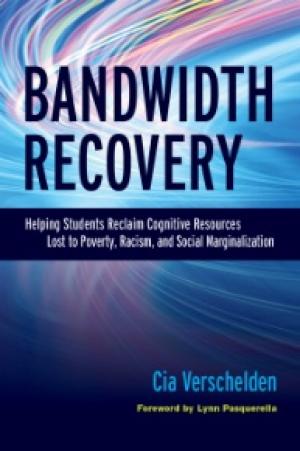
This book argues that the cognitive resources for learning of over half our young people have been diminished by the negative effects of economic insecurity, discrimination and hostility against non-majority groups based on race, ethnicity, sexual orientation, or gender identity, and other aspects of difference. Recognizing that these students are no different than their peers in terms of cognitive capacity, this book offers a set of strategies and interventions to rebuild the available cognitive resources necessary to succeed in college and reach their full potential.>br> Members of these groups systematically experience conditions in their lives that result in chronic stress and, therefore, decreased physical and mental health and social and economic opportunity. The costs of the many kinds of scarcity in their lives – money, health, respect, safety, affirmation, choices, belonging – is seriously reduced “mental bandwidth,” the cognitive and emotional resources needed to deal with making good decisions, learning, healthy relationships, and more. People who are operating with depleted mental bandwidth are less able to succeed in school, starting in childhood, and are much less likely to make it to college. For those who do make it, their bandwidth capacity often interferes with learning, and therefore, persisting and graduating from college. This book presents variety of evidence-based interventions that have been shown, through implementation in high schools and colleges, to help students to regain bandwidth. They are variously intended for application inside and outside the classroom and address not only cognitive processes but also social-psychological, non-cognitive factors that are relevant to the college environment as a whole. Beginning with an analysis of the impacts on mental and physical health and cognitive capacity, of poverty, racism, and other forms of social marginalization, Cia Verschelden presents strategies for promoting a growth mindset and self-efficacy, for developing supports that build upon students’ values and prior knowledge and for creating learning environments both in and out of the classroom so students can feel a sense of belonging and community. She addresses issues of stereotyping and exclusion and discusses institutional structures and processes that create identity-safe rather than identity-threat learning environment. This book is intended for faculty, student affairs professionals, and college and university administrators, all of whom have an interest in creating learning environments where all students have a chance to succeed. (From the Publisher)
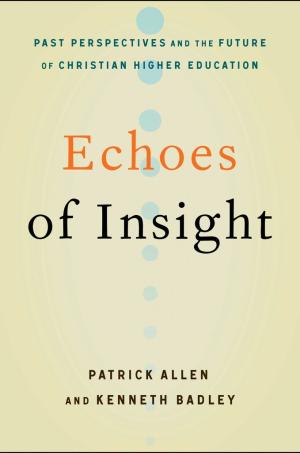
Click Here for Book Review Christian higher education needs something richer and deeper. Faith-based institutions yearn for more than business as usual, and Echoes of Insight invites you to listen again to older, forgotten, and perhaps even ignored voices. Designed to stimulate conversation among colleagues, Echoes of Insight offers brief summaries of several thought-provoking writers from the last century and encourages a new, vigorous conversation about Christian higher education. (From the Publisher)

Click Here for Book Review Every year, more online or technology-enhanced learning experiences are added to the landscape of education, and the number of students taking online courses on residential campuses continues to grow. In addition, new instructional tools are creating environments that are mobile, interactive, and collaborative. These trends present challenges to the online classroom, and this book will help instructors meet those challenges. Jump-Start Your Online Classroom prepares a first-time online instructor to successfully manage the first few weeks of a course, including activities to help instructors plan, manage, and facilitate online instruction; and provides resources helpful during the beginning weeks of class. Each chapter is developed around the immediate challenges instructors face when teaching online. The authors address everyday problems and suggest solutions informed by their extensive research and experience. The five challenges, which are designed to be addressed in five days, are to: • Make the transition to online teaching • Build online spaces for learning • Prepare students for online learning • Manage and facilitating the online classroom • Assess learner outcomes in an online classroom The book is based on the authors’ design and facilitation model that identifies five elements comprising an online learning environment: digital tools, participants, social practices, learning community, and outcomes. The book shows how each of those aspects influences instructional practices and interacts to create an environment for a meaningful online educational experience. (From the Publisher)
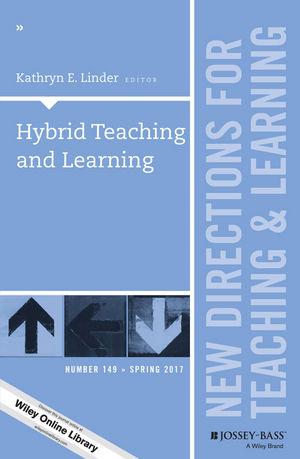
Click Here for Book Review Hybrid, or blended, classrooms are expanding on campuses across the United States (and internationally). Intentionally combining in-class instruction with online activities not only aids student learning, it also provides more self-directed, technology-mediated learning experiences for students who will incorporate technology into their professional lives post-college. In addition to explaining and defining the phenomenon of hybrid teaching and learning, this volume answers: • What is hybrid teaching and learning? • How does it promote student learning? • Why should faculty and administrators consider it? • How are its components different from traditional classrooms? • What are the best practices of hybrid course design? • How can instructors incorporate accessibility into their hybrid courses? • What models can be used to train faculty as hybrid teachers? • Where is it being practiced? • How can institutions best prepare students for and promote their success in hybrid courses? • Who should be involved in implementing and supporting these initiatives at the institutional level? This is the 149th volume of this Jossey-Bass higher education series. It offers a comprehensive range of ideas and techniques for improving college teaching based on the experience of seasoned instructors and the latest findings of educational and psychological researchers. (From the Publisher)
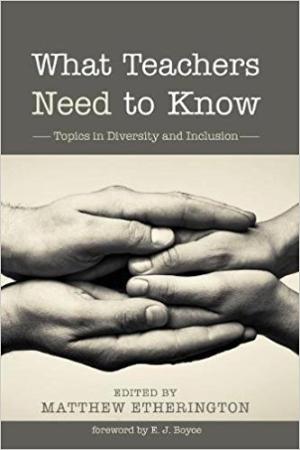
Click Here for Book Review Every generation has sought to make teaching and learning more inclusive and equitable, but pesky questions always remain, such as, how can teaching and learning be conducted in ways that satisfies and respects everyone? What are the parameters of an inclusive pedagogy? Who defines its principles? How should these principles be taught and by whom? And by what authority shall they be grounded? These types of thorny questions occupy the essence of educators and the authors of this book. This book is about teachers, educators, and topics related to inclusion. Teachers and educators have a lot to know, therefore the topics are broad and relevant to the times. What should teachers know about special needs, religion and spirituality, Aboriginality, the environment, tolerance, and school choice? Although teachers have knowledge of their subject matter, knowledge alone is not sufficient. They must know and understand how people learn. A teacher must also care deeply about who they teach. And this "teacher knowledge" grows and changes over time as teachers become more experienced, informed, skilled, and wiser. At the same time no teacher preparation will be sufficient because there will always be discussions that were never had and knowledge that was never shared. Time has its costs and there is only so much a formal education can prepare someone. This book helps to satisfy a cavity in learning for teachers and educators in general. (From the Publisher)
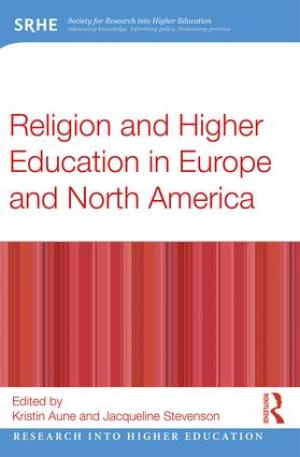
Click Here for Book Review Religion and Higher Education in Europe and North America illuminates the experiences of staff and students in higher education as they negotiate the university environment. Religious extremism has been rising across Europe, whilst recent attacks have thrown public debate around the place of religion on campus, the role of universities in recognising and managing religious fundamentalism and freedom of speech on campus into sharper focus. Despite these debates, research exploring religion on campus has been largely absent from discourse on higher education outside of America, with policy and practices designed to deal with religion on campus largely founded on supposition rather than evidence. This book speaks into that void, including results from recent studies in the field which form an empirically grounded base from a broad variety of perspectives on religion at universities. Aiming to offer a deeper perspective, more dialogue, and engagement on the experiences of students, Religion and Higher Education in Europe and North America presents us not only with an opportunity to counter growing trends of intolerance, but for people to connect with the humanity of others. Focusing on what research reveals about staff and students’ experiences, it incorporates research from different academic disciplines including sociology, education, social policy, theology and religious studies, and across different faith and belief groups. This thought-provoking and challenging volume features chapters written by researchers involved in informing policy and practice relating to religion and belief in higher education in the UK, US, Canada, France and the Netherlands . Spanning the academic-practitioner divide, students and academics interested in the sociology of religion and of higher education, as well as those responsible for the practical management of campus life, will find this text of particular importance. (From the Publisher)
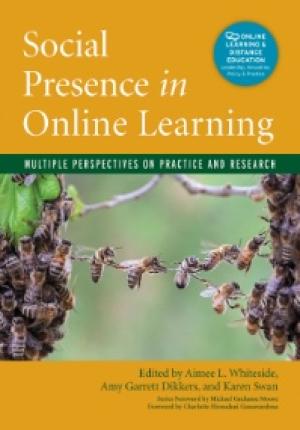
Click Here for Book Review Social presence continues to emerge as a key factor for successful online and blended learning experiences. It is commonly described as the degree to which online participants feel connected to one another. Understanding social presence with its critical connections to community-building, retention, and learning outcomes allows faculty and instructional designers to better support and engage students. This volume, Social Presence in Online Learning, addresses the evolution of social presence with three distinct perspectives, outlines the relevant research, and focuses on practical strategies that can immediately impact the teaching and learning experience. These strategies include creating connections to build community, applying content to authentic situations, integrating a careful mix of tools and media, leveraging reflective and interactive opportunities, providing early and continuous feedback, designing with assessment in mind, and encouraging change in small increments. Because student satisfaction and motivation plays a key role in retention rates and because increased social presence often leads to enriched learning experiences, it is advantageous to mindfully integrate social presence into learning environments. Social Presence in Online Learning brings together eminent scholars in the field to distinguish among three different perspectives of social presence and to address how these viewpoints immediately inform practice. This important volume: • Provides an overview of the evolution of social presence, key findings from social presence research, and practical strategies that can improve the online and blended learning experience • Differentiates three distinct perspectives on social presence and explains the ideas and models that inform these perspectives • Explores specific ways in which social presence relates to course satisfaction, retention, and outcomes • Offers practical implications and ready-to-use techniques that are applicable to multiple disciplines • Introduces current research on social presence by prominent researchers in the field with direct inferences to the practice of online and blended learning • Looks at future directions for social presence Social Presence in Online Learning is appropriate for practitioners, researchers and academics involved in any level of online learning program design, course design, instruction, support, and leadership as well as for graduate students studying educational technology, technology-enhanced learning, and online and blended learning. It brings together multiple perspectives on social presence from the most influential scholars in the field to help shape the future of online and blended learning. (From the Publisher)
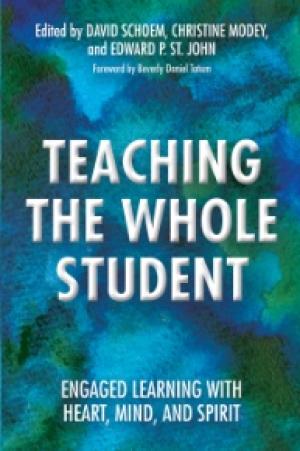
Click Here for Book Review Teaching the Whole Student is a compendium of engaged teaching approaches by faculty across disciplines. These inspiring authors offer models for instructors who care deeply about their students, respect and recognize students’ social identities and lived experiences, and are interested in creating community and environments of openness and trust to foster deep-learning, academic success, and meaning-making. The authors in this volume stretch the boundaries of academic learning and the classroom experience by seeking to identify the space between subject matter and a student's core values and prior knowledge. They work to find the interconnectedness of knowledge, understanding, meaning, inquiry and truth. They appreciate that students bring their full lives and experiences—their heart and spirit—into the classroom just as they bring their minds and intellectual inquiry. These approaches contribute to student learning and the core academic purposes of higher education, help students find meaning and purpose in their lives, and help strengthen our diverse democracy through students’ active participation and leadership in civic life. They also have a demonstrated impact on critical and analytical thinking, student retention and academic success, personal well-being, commitments to civic engagement, diversity, and social justice. Topics discussed: • Teacher-student relationships and community building • How teaching the whole student increases persistence and completion rates • How an open learning environment fosters critical understanding • Strategies for developing deep social and personal reflection in experiential education and service learning The authors of this book remind us in poignant and empirical ways of the importance of teaching the whole student, as the book's title reflects. (From the Publisher)